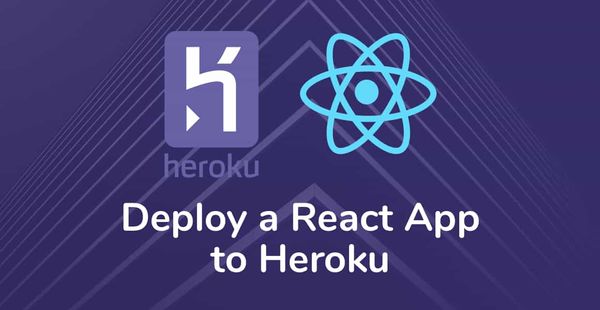How AI will transform Product Development
The integration of artificial intelligence (AI) into product development has transformed the continuously evolving digital landscape. AI's ability to handle vast amounts of data, derive crucial insights, and enhance decision-making is reshaping how we frame, design, and bring projects to market.
Today, in this blog we will dive deep into the role of AI in product development, its stages, merits, and the revolutionary changes that it brings to industries globally.
Role of AI in Product Development
AI can ease you in every aspect. From the ideation stage to market launch, AI analyzes consumer behavior, determines patterns, and delivers actionable insights, enabling businesses to make data-driven decisions.
It redefines the product development landscape by streamlining processes, forecasting market trends, and optimizing designs. The result includes efficient workflows, reduced time-to-market, and innovative products that perfectly fit consumer needs.
As AI is evolving, its role in product development is becoming pivotal, fostering a new era of agility, precision, and competitiveness in the business domain.
Integrate AI into Product Development process
Project Management
Project management is vital for successful product development. AI works by automating project planning, resource allocation, and task tracking. It examines historical project data, recognizes patterns, and yields insights that guide project managers in making informed decisions.
This not only aids in enhancing efficiency but also minimizes delays, making sure the project delivery is timely. AI-driven project management tools allow real-time collaboration, facilitating a more streamlined and productive development process.
Product Development Strategy
AI by analyzing consumer trends, behavior, and competitor activities, helps businesses frame strategies that align with market demands. With the help of machine learning algorithms, AI can easily process vast amount of data to identify opportunities and possible challenges.
It enables product development teams to make clear decisions that are informed and ultimately lead to better product launches. The main benefit of AI in strategy formulation is to ensure that businesses stay competitive and adaptive in dynamic market environments.
Software Requirement Gathering
Software requirement gathering is the base for the entire development process. AI eases this process by automating the analysis of user needs. Natural Language Processing (NLP) algorithms can easily filter through large datasets, user feedback, and historical project data to figure out and prioritize requirements.
It makes sure that user needs are understood well, decreasing the risk of overlooking critical features or functionalities. AI-driven requirement-gathering tools do their part with their efficient and precise software planning.
Software Architecture
The robust and scalable software architecture is fundamental for the success of any product. AI aids in this process by analyzing complex datasets and providing insights that result in the right architectural decisions.
Machine learning algorithms can efficiently predict potential bottlenecks, recommend optimizations, and ensure the architecture aligns with the project's scalability needs. AI-driven design tools empower developers to create architectures that are not only efficient but also adaptable to future enhancements.
Software Frontend Design
User experience is the key factor influencing product success, and AI plays a significant role in enhancing front-end design. Through user behavior analysis, AI recognizes patterns and preferences, allowing designers to create intuitive and user-friendly interfaces.
AI-driven design tools can forge design suggestions based on historical data, assuring that the front end aligns with user expectations. This results in a more engaging and satisfying user experience, contributing to the overall success of the product.
Automatic Code Generation
The development phase often takes long intervals to write lines of code, a time-consuming process prone to errors. AI streamlines this by automating code generation. Using machine learning models trained on vast code repositories, AI tools can generate code snippets or even entire modules based on requirements.
This not only accelerates the development process but also minimizes the risk of introducing bugs or inconsistencies in the code. Automatic code generation is a testament to how AI enhances efficiency and accuracy in software development.
AI for Rapid Prototyping
Prototyping is an essential step in product development to visualize ideas and gather feedback. AI expedites this process by encouraging rapid prototyping. Machine learning algorithms can analyze design preferences, user interactions, and market trends to suggest modifications in real-time.
This iterative approach allows for quick adjustments based on feedback, ensuring that the final product aligns closely with user expectations. AI-driven rapid prototyping tools contribute to a more agile and responsive product development lifecycle.
AI in Quality Assistance
Quality assurance is paramount in ensuring a product meets expected standards. AI revolutionizes this phase by automating testing processes. Machine learning algorithms can analyze code patterns, predict potential vulnerabilities, and perform comprehensive testing scenarios.
Automated testing ensures thorough coverage, identifying defects and vulnerabilities that might be challenging to catch through manual testing. AI-driven quality assurance not only enhances the reliability of the product but also speeds up the testing phase.
AI in Product Deployment
The shift from development to deployment is a critical phase that AI makes easy. AI-driven deployment tools automate the process, ensuring a smooth and error-free transition to the production environment. These tools can analyze system requirements, dependencies, and potential conflicts, minimizing the risk of deployment issues.
Automated deployment processes contribute to more reliable and consistent product releases, reducing downtime and ensuring a positive user experience from the moment the product goes live.
AI in Product Marketing
A product can't succeed if it's not marketed well. Marketing strategies are pivotal in bringing a product to the forefront of the market. AI makes product marketing a cakewalk by analyzing consumer behavior, predicting market trends, and personalizing promotional campaigns. Machine learning algorithms can segment target audiences, identify optimal channels for promotion, and even suggest content that resonates with specific demographics.
AI-driven marketing strategies ensure that promotional efforts are data-driven, maximizing the reach and impact of campaigns. This data-centric approach contributes to more effective product marketing, driving market success.
Merits of AI in Product Development
1.Cost reduction
One of the major advantages of integrating AI into product development is the substantial reduction in costs. AI-driven automation facilitates various processes and minimizes the need for manual labor and repetitive tasks. Whether it's automating routine coding tasks or easing resource allocation, AI contributes to operational efficiency, ultimately leading to cost savings for businesses.
2. Improved decision-making
AI shares advanced analytics and data-driven insights, promoting more informed and strategic decision-making. By analyzing vast datasets at remarkable speeds, AI systems can uncover patterns, trends, and correlations that may go unnoticed while following traditional methods. This aids decision-makers in making timely and accurate choices, enhancing the overall decision-making process in product development.
3. Process optimization
The application of AI in product development optimizes various processes within the product development lifecycle. From automating repetitive tasks to determining bottlenecks and inefficiencies, AI contributes to a more streamlined and efficient workflow. This optimization not only accelerates the product development timeline but also ensures that resources are utilized with maximum efficiency.
4. Rapid product development
AI's capability to automate complex tasks and processes expedites the product development cycle. Tasks such as code generation, testing, and even prototyping can be accelerated through AI-driven tools. This acceleration enables businesses to bring products to market more quickly, gaining a competitive edge in dynamic and fast-paced industries.
5. Improved product quality
AI plays a key role in enhancing the quality of products by automating and augmenting quality assurance processes. Machine learning algorithms can perform exhaustive testing scenarios, identify potential vulnerabilities, and contribute to robust, bug-free software development. The result is a higher-quality product that meets user expectations.
Different stages of AI Product Development
Identifying the business objectives
The AI product development begins by clearly defining the business objective that the AI solution aims to address. This is closely followed by the crucial process of data collection. Gathering relevant and diverse datasets is fundamental, as the quality and variety of data directly impact the performance and effectiveness of the AI model.
Data preparation and exploration
Once the data is collected, the next stage includes preparing and exploring the datasets. This includes cleaning the data, handling missing values, and ensuring its compatibility with the chosen AI algorithms. Exploratory data analysis (EDA) is conducted to gain insights into the data's characteristics and patterns, laying the foundation for the subsequent development phases.
The design sprint
The design sprint is a concentrated and collaborative phase where the AI product's architecture and functionality are conceptualized. This involves selecting appropriate machine learning algorithms, defining the model architecture, and creating a prototype. The design sprint sets the course for the development and implementation of the AI in the product.
Deployment and maintenance
The final stages of AI product development encompass deploying the developed solution into the target environment and maintaining its ongoing functionality. Deployment involves integrating the AI model into the intended system or application, making it accessible to end-users. Maintenance includes monitoring the AI system's performance, updating models if necessary, and ensuring continued compatibility with evolving business needs.
Conclusion
In conclusion, the integration of AI into the product development process signifies a paradigm shift in how businesses conceive, build, and manage their product development. From cost reduction and improved decision-making to streamlined processes and rapid development cycles, the merits of incorporating AI are substantial. The different stages, from identifying business objectives and data preparation to design sprints and deployment, illustrate a systematic approach to harnessing the power of AI.
As industries increasingly leverage AI capabilities, understanding and navigating these stages become imperative for staying competitive and delivering innovative, high-quality products that meet the demands of the evolving digital landscape.
FAQs
Q. How does AI affect software product development?
A. AI accelerates software product development by automating repetitive tasks, enhancing decision-making, and optimizing processes, leading to faster and more efficient development cycles.
Q. What is MLDevOps?
A. MLDevOps, or Machine Learning DevOps, refers to the integration of machine learning practices into the DevOps methodology, ensuring seamless collaboration between development, operations, and data science teams for ML model deployment and management.
Q. What is AI’s role in product delivery?
A. AI plays a crucial role in product delivery by enabling predictive analytics, personalization, and automation, resulting in enhanced user experiences and faster product delivery.
Q. How do brands use AI in product development?
A. Brands leverage AI in product development for tasks like market analysis, customer insights, and predictive modeling, allowing them to make data-driven decisions, innovate product features and stay ahead in competitive markets.




